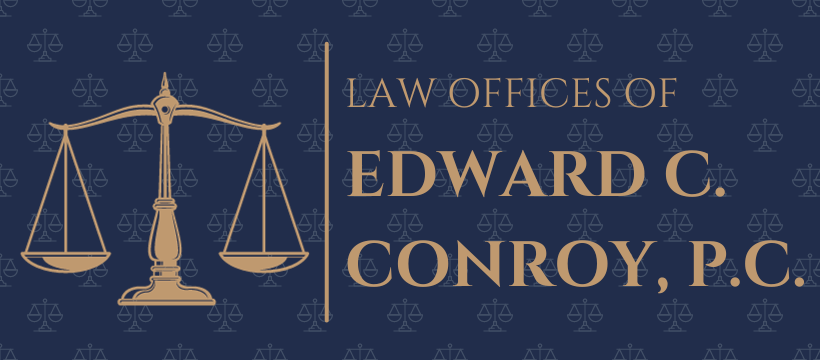What is Mortgage Escrow?
Escrow involves a third party (often an escrow agent) temporarily holding money or property until specific conditions are met. These conditions could include the fulfillment of a purchase agreement. In the context of real estate, escrow serves to protect both the buyer and the seller during the home buying process.
Types of Escrow Accounts:
Good Faith Deposit (Earnest Money) Escrow Account:
- When you’re buying a home, your purchase agreement usually includes a good faith deposit (also known as earnest money).
- This deposit demonstrates your seriousness about purchasing the home.
- If the contract falls through due to the buyer’s fault, the seller typically keeps the money.
- If the home purchase is successful, the deposit is applied to the buyer’s down payment.
- An escrow account is set up to hold this deposit until the transaction closes.
Escrow Holdback:
Sometimes, funds are held in another type of escrow account beyond the completion of the home sale. This is called an escrow holdback. Reasons for an escrow holdback may include:
- Agreements where the seller stays in the home for an extra month.
- Outstanding bills (e.g., water bills) that the seller is responsible for.
- New home construction, where money remains in escrow until all work is completed.
Escrow Accounts for Taxes and Insurance:
After purchasing a home, your mortgage lender establishes an escrow account to pay for:
- Property taxes: These can vary from year to year, so the amount required for escrow changes accordingly.
- Homeowners insurance: Ensures your home is protected.
Each month, a portion of your mortgage payment is held in the escrow account until tax and insurance payments are due.
The goal is to ensure timely payment of these essential expenses. In summary, mortgage escrow simplifies financial management by handling taxes, insurance, and deposits.
What is Mortgage Interest?
Mortgage interest is the cost of borrowing money to purchase a home. When you take out a mortgage loan to buy a property, the lender charges you interest on the amount borrowed. Here are the key points about mortgage interest:
Calculation: The interest owed is calculated as a percentage of the total mortgage loan issued by the lender.
It’s important to note that mortgage interest compounds, meaning it accumulates over time.
Fixed or Variable Rates: Some mortgages come with fixed-interest rates, where the interest rate remains constant throughout the loan term. Others have variable interest rates, which can change based on market conditions.
Payment Structure: Your monthly mortgage payment includes both a principal portion (repaying the borrowed amount) and the interest. Initially, a significant portion of your payment goes toward interest, gradually shifting more toward the principal balance as the loan ages.
In summary, mortgage interest is a crucial component of homeownership, impacting your monthly payments and overall financial planning. Whether fixed or variable, understanding how it works helps you make informed decisions about your home loan
What are Points?
Mortgage points, also known as discount points, are an option for buyers to pay an upfront fee at closing to buy down the interest rate on a loan. Mortgage points refer to a percentage of your loan amount. For instance, one discount point costs you 1% of your loan amount and reduces your interest rate by 0.25%.
When you choose to buy mortgage discount points, you’re essentially pre-paying interest upfront.
In exchange, you get a lower interest rate and reduced monthly payments. These points allow you to customize your loan terms.
TAX IMPLICATIONS:
Q. Are last year’s mortgage escrow payments tax-deductible?
A. You can deduct only the payments applied to your 2005 tax bills; you can’t deduct any payments that were carried over and applied to your tax bills for the current year.
On the other hand, if you purchased a home last year, you can deduct any prorated tax payments you made at the closing to reimburse the seller for advance tax payments he made for year prior.
Q. The IRS bulletin explaining deductions for mortgage interest payments says homeowners can deduct “acquisition debt.” I tried to read the explanation, but my eyes glazed over. Can you help?
A. Acquisition debt is the debt you incur “to buy, build, or substantially improve your home” – The mortgage, minus any principal payments. It is deductible up to a maximum of $ 1 million for a couple filing jointly and $500,000 for a single taxpayer.
You can also deduct interest on a home equity loan of up to $100,000, above your acquisition debt limit, with no restrictions on the purposes for which you use those equity funds. You can deduct home equity interest above that $100,000 ceiling if you use the funds to finance improvements on your home.
One important restriction: Total tax-deductible mortgage debt (notwithstanding the borrower’s acquisition debt limit) can’t exceed the home’s current value. Homeowners who took advantage of the 125 percent of value equity loans some lenders were offering may regret that decision when they discover some of their interest payments aren’t deductible.4
Q. Is mortgage interest deductible on my taxes?
A. Mortgage interest is one of the major deductions available to personal taxpayers.
You can claim mortgage interest up to a certain amount as a tax deduction.
However, to qualify, you must itemize your deductions rather than take the standard deduction option.
For properties purchased after December 15, 2017, mortgage interest on the first $750,000 qualifies for the deduction.
Q. Are points paid by the seller in a home-purchase transaction deductible?
A. That depends. The buyer can deduct the points, even if the seller pays them. The sellers can’t claim that deduction, too, but they can add the points paid to the cost basis of their home, which has the effect of reducing their gain and their potential tax liability. Conversely, buyers who deduct the points paid by the seller must also deduct that amount from their cost basis.
Also: IRS rules allow you to deduct points paid in connection with the purchase of a primary residence in the year in which the points are paid.
The rules for a refinance transaction are different. You have to spread the deduction over the life of the loan. The same limitation applies to points paid in connection with the purchase of a second home.
Of course, there are always exceptions to the rules, and there are two important ones here: If you did a cash-out refinance and used any portion of those funds to finance a home improvement project, you can deduct the points attributable to that portion of the loan in full instead of amortizing them over the life of the loan. If you refinance again, or sell your home, you can deduct the balance of any points you paid but did not claim on the original refinancing.

